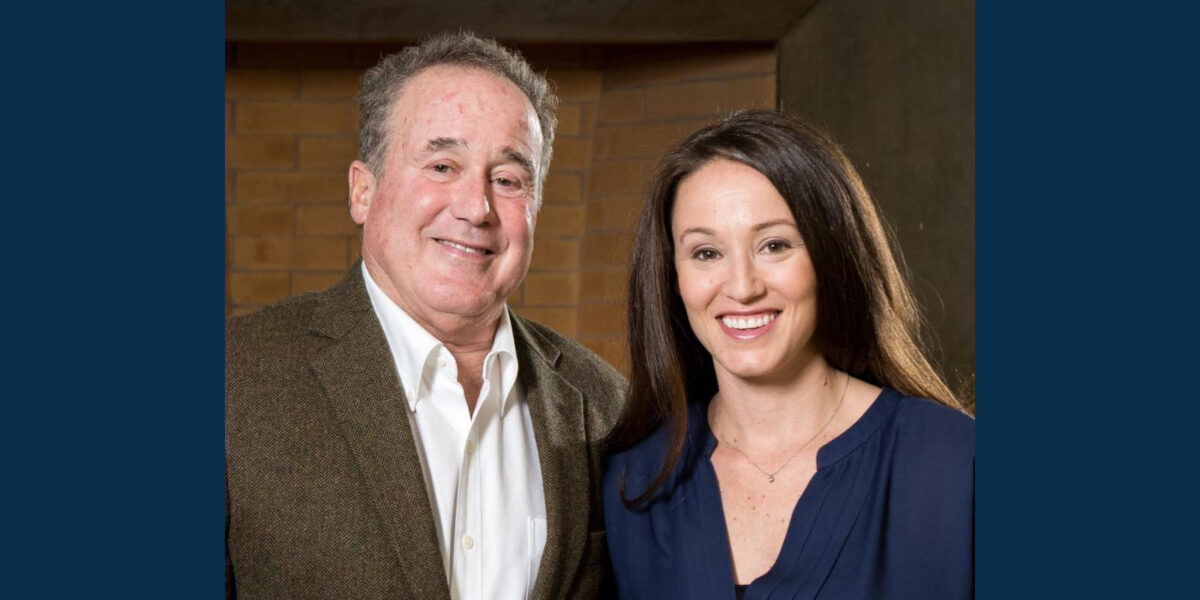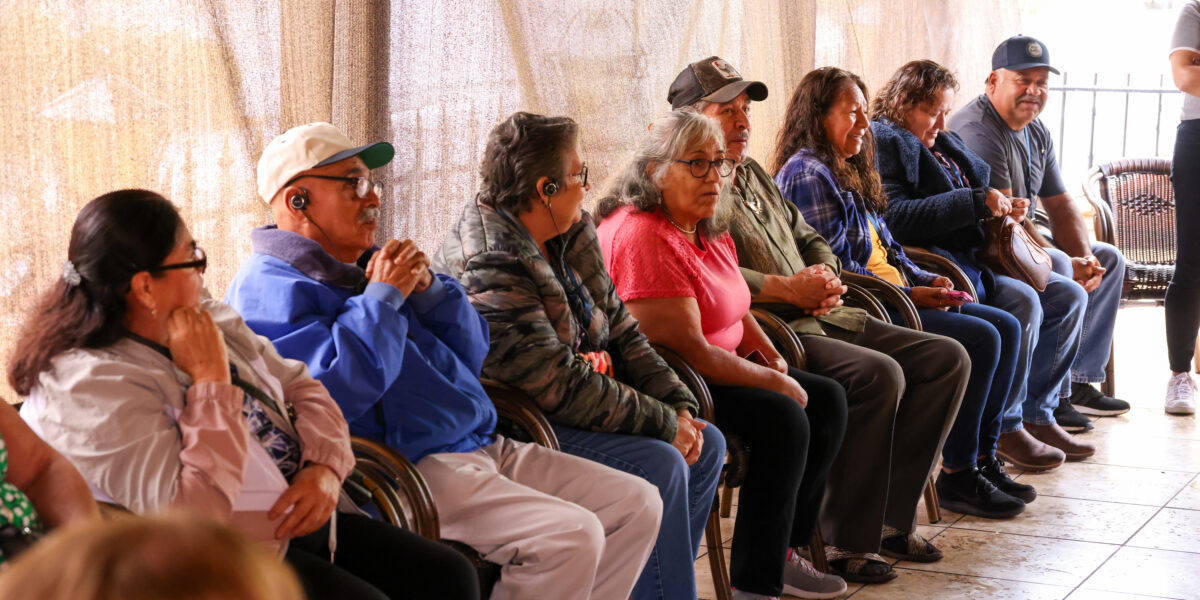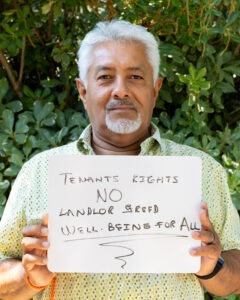

The Mental Health Talent Pipeline at 5: A Conversation with Ariel Kelley
3 min read. Former Healdsburg Mayor Ariel Kelley reflects on the role her late father, Dr. Steven Ungerleider, played in the founding of the Mental Health Talent Pipeline.
Two of the people involved in the early conversations that led to the development of the Mental Health Talent Pipeline were former Healdsburg Mayor and co-founder of Corazón Healdsburg Ariel Kelley and her late father, Dr. Steven Ungerleider. Dr. Ungerleider, who passed away in 2023, was a renowned sports psychologist, author, and documentary film producer as well as a key benefactor who helped to underwrite the early pilot years of the program.
The Healthcare Foundation recently marked five years since the Mental Health Talent Pipeline established itself, after its initial pilot phase, as an ongoing program that is bridging the gap in bilingual and bicultural mental health services for northern Sonoma County’s Latine community.
In continuing our celebration of the milestone year, we spoke with Ariel Kelley about the origins of the Mental Health Talent Pipeline and the role played by her father in the conception and launch of this innovative scholarship program.
What was your father’s connection to Healdsburg and northern Sonoma County?
My father moved here in 2013 and lived in Alexander Valley until he died in 2023. He had been living in Austin, Texas, splitting time between Austin and Eugene, Oregon, where I’m from. He moved here because he wanted to be closer to both me and my sister, and live closer to his grandkids, but he also really fell in love with the culture and the natural outdoor beauty of the area.
How did he come to be involved in the early conversations that gave rise to the Mental Health Talent Pipeline project?
He was a clinical psychologist by training, very involved with the American Psychological Association and the psychology department at the University of Oregon where he did his doctoral study and training. So when the first conversations were coming together around the Mental Health Talent Pipeline he was naturally interested. Of particular importance for him, and for all of us, was the lack of access to providers, the extremely long wait times that patients would have to endure just to get in to see a practitioner, and the lack of culturally responsive training and bilingual and bicultural providers in this region. We were concerned about what all this meant for the Latino community, a growing and generally young population in the county. Especially after the 2017 fires, we realized that trauma in the community was something that we would need to be very mindful in addressing. We needed to be more intentional about how we ensure that there is equitable access to resources.
“I think [the program] has really exceeded everybody’s wildest expectations. It is so impressive seeing how successfully these masters degree students are able to work, as graduate student trainees and in many cases afterward as full-time staff, in local nonprofits and throughout the region’s health ecosystem.”
Ariel Kelley
Who else was in those early conversations and how were they structured?
We were speaking together with [former Healthcare Foundation Executive Director] Debbie Mason, Barbara Grasseschi and a committee of Board members, and Marc and Jeanie Kahn as well. People were meeting, looking at data generated by A Portrait of Sonoma County (the report the County had published around that time), and seeing big disparities and a significant lack of access. We also saw an opportunity where the Healthcare Foundation could step in and make an impact. As the idea of a scholarship program that would support a local pipeline of bilingual and bicultural mental health professionals took shape, my father stepped forward as one of the initial founding donors, in partnership with the Kahns, making a multi-year pledge to the program to get it off the ground.
What are your reflections on the program five years on?
I think it has really exceeded everybody’s wildest expectations. It is so impressive seeing how successfully these masters degree students are able to work, as graduate student trainees and in many cases afterward as full-time staff, in local nonprofits and throughout the region’s health ecosystem. The progression is all the more natural and smooth because these are organizations the Healthcare Foundation is already supporting and coordinating with — organizations like Corazón, Alliance Medical Center, and La Familia Sana.
Those scholarship recipients are providing an amazing staffing component at these nonprofit organizations, while also getting their “practicum” or trainee hours toward graduation and eventual licensure as therapists. So it’s a multiplier effect, which is great. And more than this: the pipeline provides sustainable jobs for these young professionals, many of whom are the first in their family to go to college, let alone get their masters, which is remarkable. In this way, the MHTP program also has the ability to help lift an entire family into the middle-class, by providing the support necessary for aspiring bilingual and bicultural professionals to take that leap towards post-secondary education. We know that, for a lot of people, the cost of postsecondary education is otherwise a huge deterrent. So MHTP is key to helping them continue along that path of professional achievement and service to the community.
Was this support for a local first-generation professional class part of the initial thinking?
I think it emerged over time. It was definitely something I was thinking about because I was involved with the early days of starting Corazón then and we were focused on the high school–to-college pipeline — where it was very clear that there were a lot of reasons why bright, young talented people in our community were not going on to college after high school, the cost of skyrocketing tuition being one of them. I think the Healthcare Foundation also knew, through its experience with the nursing scholarships that they had provided for a long time, that these funds were going to be really critical in helping local folks go after their dream. It was a win-win in so many ways.

Related News + Stories
Invest in Our Community
Your support is vital to our collective vision of eliminating health inequities in northern Sonoma County.
Donate



